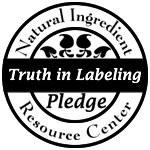An environmental activist group “Beyond Pesticides” is once again lobbying against a common and controversial anti-bacterial called “Triclosan.”
Triclosan is regulated in the US and found in soaps, deodorants, toothpastes, shaving creams, mouth washes and an increasing number of consumer products.
Do you use any of these?
- Clearasil Daily Face Wash
- Dentyl mouthwash, Mentadent
- the Colgate Total range, Crest Cavity Protection, Sensodyne Total Care
- Softsoap, Dial
- Right Guard deodorant.
If you do then you should confirm whether Triclosan is listed as an ingredient. By law, US manufacturers of products containing triclosan must say so somewhere on the label.
Why should you be concerned? Triclosan scores a 7 on EWG’s Cosmetic Database (10 being the most harmful) and is restricted in Canada and Japan.Jay Feldman, executive director of Beyond Pesticides believes that,
"The nonmedical uses of Triclosan are frivolous and dangerous, creating serious direct health and environmental hazards and long-term health problems associated with the creation of resistant strains of bacteria."
Reports have suggested that triclosan can combine with chlorine in tap water to form chloroform gas, which the EPA classifies as a probable human carcinogen. As a result, triclosan was the target of a UK cancer alert, even though the study showed that the amount of chloroform generated was less than amounts often present in chlorinated drinking waters.
A 2006 study concluded that low doses of triclosan act as an endocrine disruptor in the North American bullfrog. The hypothesis proposed is that triclosan blocks the metabolism of thyroid hormone, because it chemically mimics thyroid hormone, and binds to the hormone receptor sites, blocking them, so that normal hormones cannot be utilized. Triclosan has also been found in both the bile of fish living downstream from waste water processing plants and in human breast milk.
Despite the lobbying, personal care industry groups have continued to use Triclosan, claiming that there is no conclusive evidence that it is harmful to humans.
As always – caveat emptor – let the buyer beware. Be assured that our soaps, deodorants, or any of our products for that matter, do not contain this controversial ingredient!
Read reviews of Samantharoma’s Deodorant Mist at:
Thegreenguide.com
Lesstoxicbeauty.com
Sources:
http://www.cosmeticsdesign.com/Formulation-Science/Anti-bacterial-chemical-back-in-the-spotlight
http://cosmeticsdatabase.com/ingredient.php?ingred06=706623
http://en.wikipedia.org/wiki/Triclosan
http://www.beyondpesticides.org/pesticides/factsheets/Triclosan%20cited.pdf






